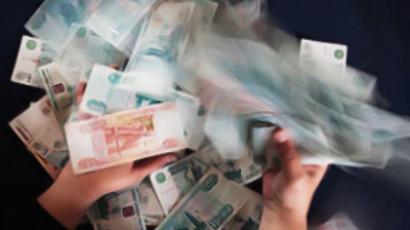Dwindling reserves put focus on future outlays
Russia has spent a third of its Reserve Fund covering the budget deficit and it’s planning to spend the same amount again in the third quarter.
At this pace, analysts fear, the money accumulated in recent years will run out by the end of 2009, with $53 billion to be spent in the coming quarter leaving only the same amount again in a Reserve Fund created to cover the budget deficit in difficult times.
Some concern stems from the way the money is being spent. Vladimir Osakovsky, Head of strategy and research at Unicredit Group says the Chinese model would be the right choice for Russia.
“The budget this year and the next year will almost entirely be socially oriented. These anti-crisis efforts really differentiate Russia from other countries like China, for example, where most emphasis is being done on infrastructure spending rather than social spending, and we think that Chinese approach would be really helpful for Russia.”
According to analysts, the budget deficit this year and the next will amount to almost $200 billion, meaning Russia will have to borrow abroad in 2010, for the first time in a decade.
However, Yulia Tseplyaeva, Chief Economist at Merrill Lynch, Russia and CIS, says it shouldn't wait.
“If the government just kept a part of the fund – the foreign borrowing, borrowing in Eurobond market could be cheaper for the Government.”
Russia’s Gazprom has issued nearly $2.5 billion of Eurobonds at an annual rate of just over 8 % but experts say the Russian state could borrow even more cheaply. Even so, with the oil price under $85 per barrel and rapidly shrinking reserves the country will become a chronic debtor for a decade, borrowing up to $25 billion annually.













